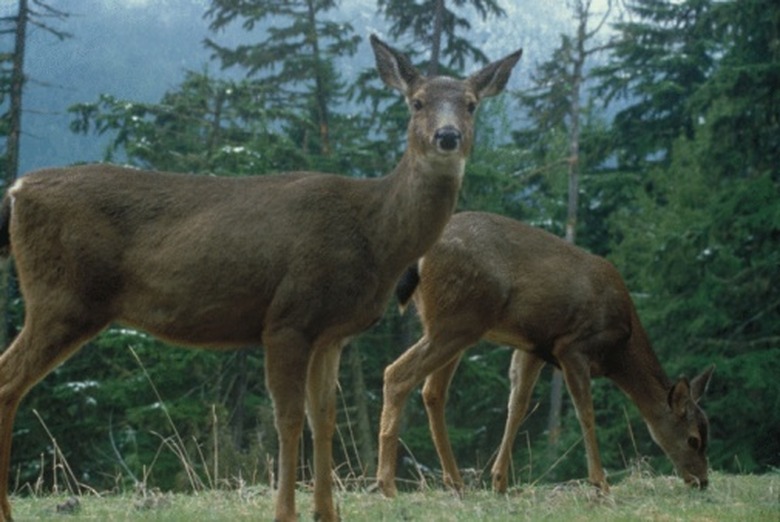Deer-Resistant Weeping Trees
While many ways exist to deter deer from eating weeping trees, such as fencing and sprays, they tend to be costly and time consuming. The easiest method is to select varieties of weeping trees unappealing to deer.
While many ways exist to deter deer from eating weeping trees, such as fencing and sprays, they tend to be costly and time consuming. The easiest method is to select varieties of weeping trees unappealing to deer.
Weeping Tree Characteristics
Trees with a weeping growth habit have an arching form, with branches cascading from the crown. Their unusual form lends a note of grace to a landscape, and they are frequently used as accent plants.
Deer-Resistant Trees
Deer-resistant trees are those that deer do not prefer to eat, due to an unpleasant flavor or odor, thorns or sharp leaves. These plants survive easier in areas with a high deer population.
Varieties
Varieties of deer-resistant weeping trees include golden weeping willow, flowering dogwood, weeping cherry, weeping European beech, weeping Candied Red crabapple, weeping white pines and weeping Norway spruce. These varieties are eaten infrequently by deer and are good choices for a landscape where deer browsing is a problem.
- While many ways exist to deter deer from eating weeping trees, such as fencing and sprays, they tend to be costly and time consuming.
- These varieties are eaten infrequently by deer and are good choices for a landscape where deer browsing is a problem.
